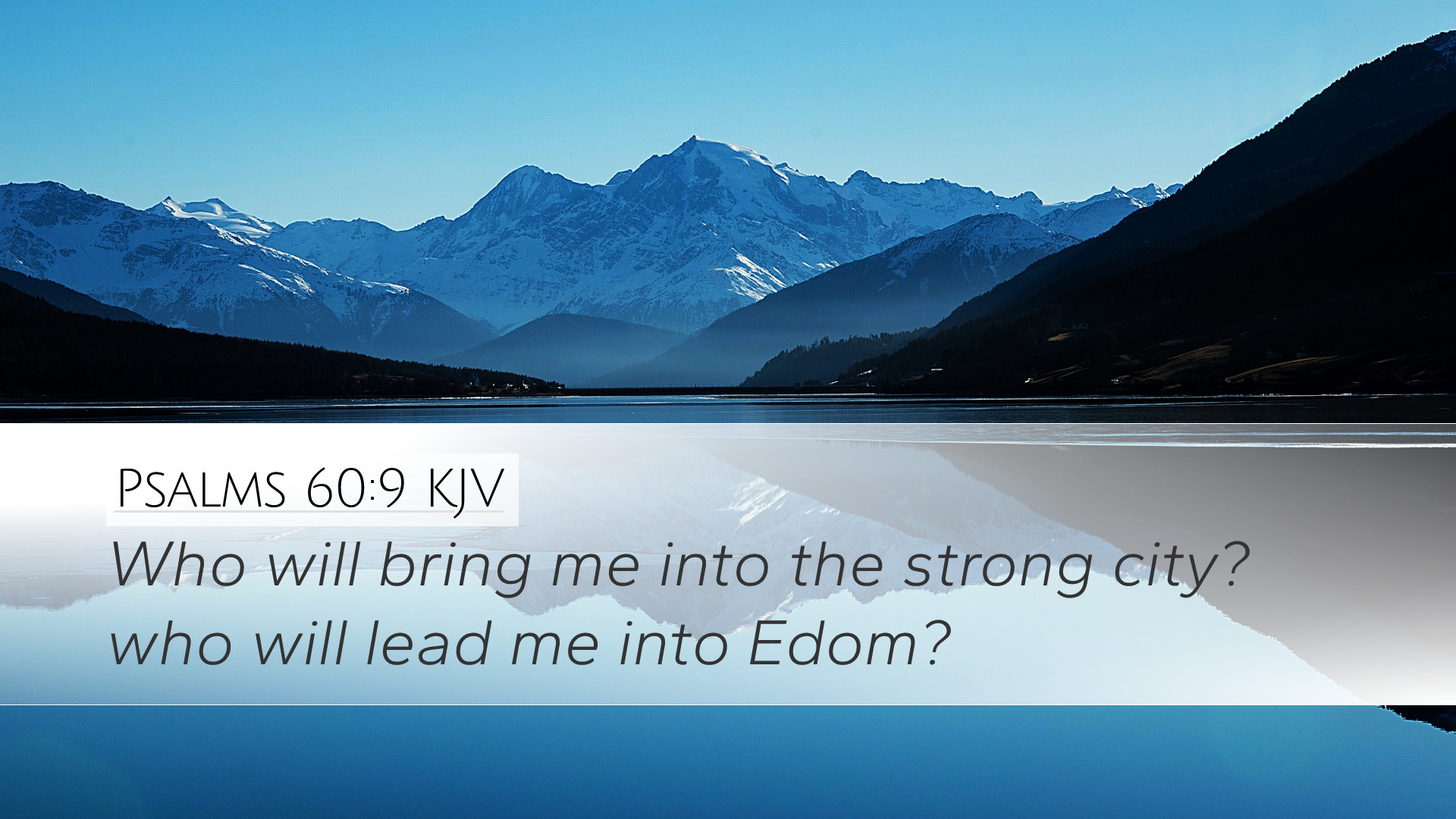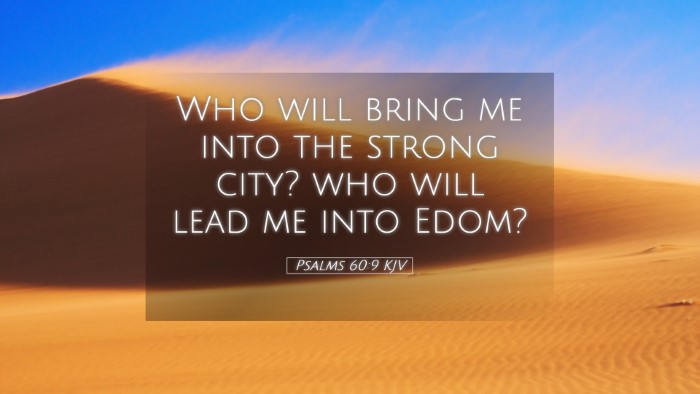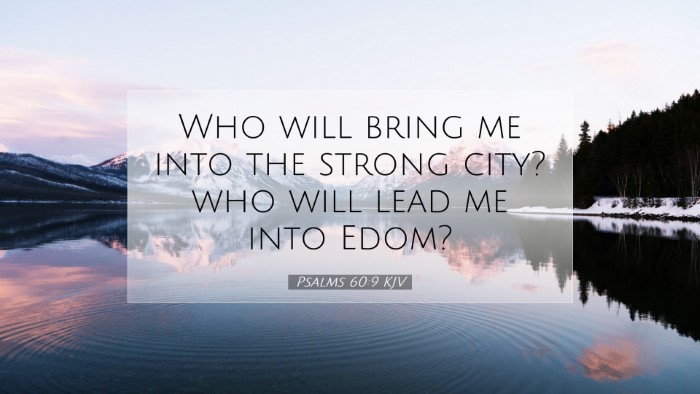Psalms 60:9 - A Commentary
Text of the Verse: "Who will bring me into the strong city? who will lead me into Edom?" (Psalms 60:9)
Introduction
The verse poses a poignant question reflecting the struggles of the psalmist in the face of overwhelming challenges. Written in a context of military distress, it echoes the deep human longing for leadership and divine assistance. This commentary synthesizes insights from various public domain sources including Matthew Henry, Albert Barnes, and Adam Clarke to enhance understanding and application.
Contextual Background
Psalms 60 is attributed to David during a time of national strife, possibly connected to military conflicts with Edom. The psalm expresses both a recognition of past victories granted by God and a plea for renewed strength in the face of current adversities. This context is crucial for appreciating the depth of the inquiry presented in verse 9.
Analysis of the Verse
Who Will Bring Me into the Strong City?
David asks, "Who will bring me into the strong city?" Signifying a yearning for divine guidance, this phrase represents more than mere geographic movement; it represents the aspiration for safety, refuge, and divine favor in battle. As Matthew Henry elaborates, David's asking reflects an acknowledgment of his vulnerability and the need for God’s intervention. Only divinely appointed leadership can bring forth victory.
Who Will Lead Me into Edom?
The second part of the question, "who will lead me into Edom?" alludes to the broader conflict with enemies. Albert Barnes notes that Edom was historically a formidable foe, representing the challenges and obstacles that believers face in their spiritual journey. The emphasis on leadership reinforces the understanding that mere human strength is inadequate.
Theological Reflections
This verse invites profound theological reflection on God's providence. It suggests a reliance on divine guidance amidst turmoil. Adam Clarke posits that the strong city symbolizes not just physical fortification but also spiritual security that comes through faith. The psalm's narrative encourages those in ministry, study, and theological pursuits to recognize their dependency on God as they navigate life’s complexities.
Human Effort Versus Divine Leadership
In practical terms, David's lament underscores a critical tension between human effort and divine intervention. While leaders must act, they must do so in alignment with God’s will. This interplay is essential for pastors and theologians when considering leadership in both ecclesiastical and personal realms.
Lessons for Contemporary Application
How do David’s inquiries inform our lives today? In moments of crisis, this verse has much to teach about seeking guidance and acknowledging our limitations. Leaders in churches and communities must reflect on their sources of strength, asking themselves and God the essential question of who will lead them.
Encouragement for Believers
Believers can find encouragement in knowing that God is the ultimate source of guidance. The psalmist’s question is a reminder of the importance of prayer and reliance on divine wisdom. As Matthew Henry observes, in acknowledging our need for divine assistance, we open ourselves to the powerful work of God in our lives, especially in difficult moments.
Introspection for Leaders
For church leaders, this verse prompts introspection on their leadership styles and sources of counsel. Are they relying solely on their abilities, or are they seeking God's direction in their leadership decisions? This inquiry is crucial for effective ministry and congregational health.
Conclusion
Psalms 60:9 serves as a heartfelt plea that resonates through the ages, inviting readers to consider their dependency on divine guidance amidst life's challenges. The insights drawn from historical commentaries reveal the richness of this text and its applicability to contemporary believers. Ultimately, it compels action: to seek the strength that only God can provide as we navigate the strong cities and spiritual Edoms we encounter.In battling our giants, let us not forget to ask, "Who will lead me?"


